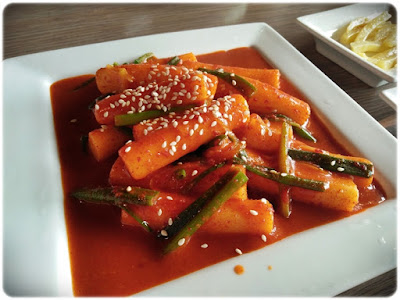□■ Tteok-bokki (Stir-fried Rice Cake) ■□
Tteokbokki is a popular Korean dish that combines a variety of textures and flavors. The dish is traditionally made by cutting long rice cakes into bite-sized pieces and adding a variety of vegetables, including onion, carrot, cabbage, and green onions. The dish is then mixed with a hot pepper sauce, eggs, and fish cake to create a unique combination of sweet, spicy, and salty flavors.

Photo by pixabay
The calorie content of tteokbokki can vary depending on factors such as the quantity of rice cakes (tteok) and sauce used. Usually, one serving of tteokbokki (about 240 ml) contains around 250-300 calories. However, this number can increase depending on additional ingredients such as fish cakes, boiled eggs, or cheese.
[ Tteok-bokki Calories and Nutritional Information ]
.png)
Tteokbokki is a versatile dish that can be served on its own or as part of a larger meal. Many people enjoy eating it with Gimbap, a Korean rice roll that is often filled with vegetables, meat, and egg. Others pair it with Sundae, a Korean sausage made from pig's blood and other ingredients.
In addition to being a delicious and satisfying meal, Tteokbokki is also a popular street food in Korea. It can be found in food stalls and markets throughout the country, and is enjoyed by people of all ages. For those who prefer a soupier version of the dish, fish cake soup is often served alongside Tteokbokki to help balance out the spice and heat of the dish. Whether enjoyed as a snack or as a meal, Tteokbokki is a must-try for anyone interested in Korean cuisine.
